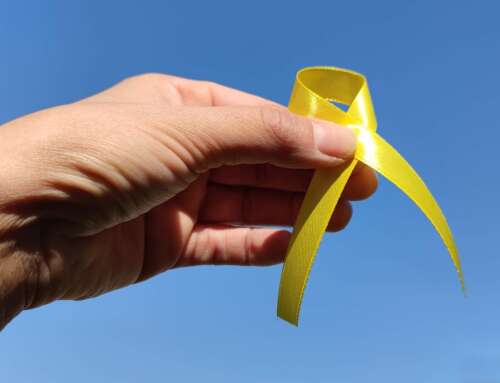Kate* was sitting at her desk working late with her colleague Ben* when he told her he was suicidal.
She was visibly horrified and when Ben saw her reaction he immediately took his words back and asked her not to tell anyone.
“You’re kind of a friend, a colleague, a manager, and you want to respect their wishes but also you have a duty of care to make sure they’re okay and that’s a difficult situation to be in,” Kate said. “I had this responsibility that I didn’t know what to do about.”
While Kate underwent workplace training to support her staff, she felt her responsibility went beyond ticking boxes for HR.
“Basically we had an agreement where I would text him everyday and he had to respond. And I said if you don’t respond, I will come and find you.”
We are told to contact helplines, GPs or even hospitals but as Lifeline’s Lee-Anne Borham says, sometimes people just need to talk with a loved one.
But what are you supposed to say?
Nick*, 38, has experienced depression and serious thoughts of suicide and says the worst thing someone can say is “cheer up”.
“I can understand from their perspective they may say it with such good will, but for the receiver it actually doesn’t help and it makes them retract more,” he said. “They don’t have to say anything, they can just be there.”
Ms Borham says often people who suspect a loved one is suicidal don’t ask because they may not feel equipped to deal with the answer.
“If you care, you’re equipped,” Ms Borham said. “Just be honest and don’t be afraid and simply ask the person are they struggling, how are they feeling and is there any chances they might be having thoughts of suicide, I think we need to be specific and not be fearful. So if you’re worried about somebody, express your concern in the way that you normally relate to them in the relationship that you have.”
Ms Borham says an honest conversation will help you establish what stage that person is at and whether they have thought about a plan or deliberately harmed themselves.
– Edwina Seselja
Read more: ‘If You Care, You’re Equipped’: How To Support Someone Who is Suicidal
Image by Fernando from Unsplash







Leave A Comment